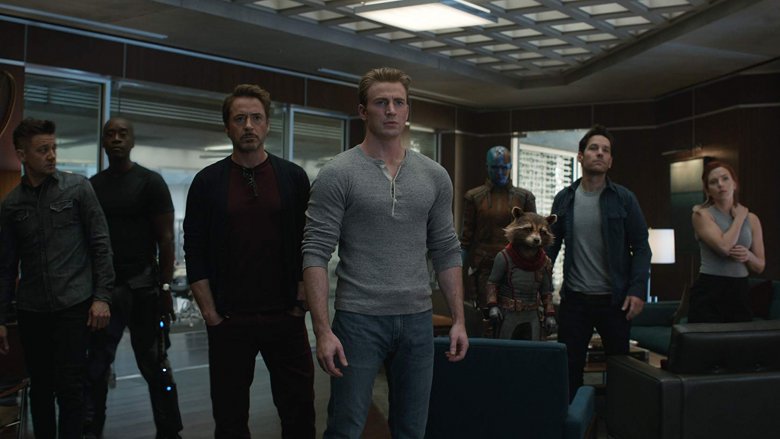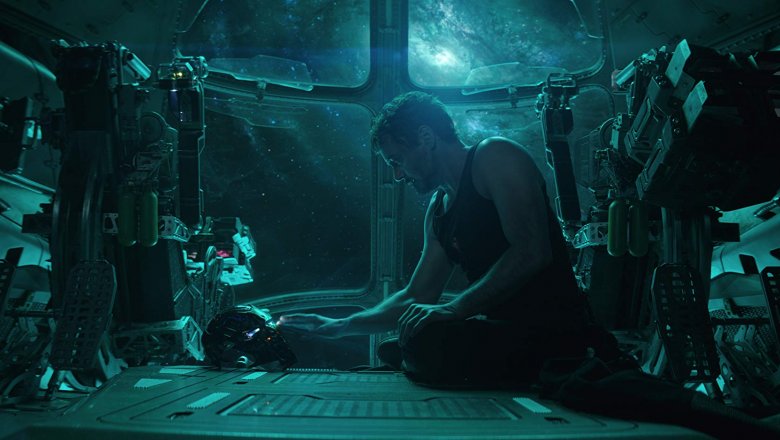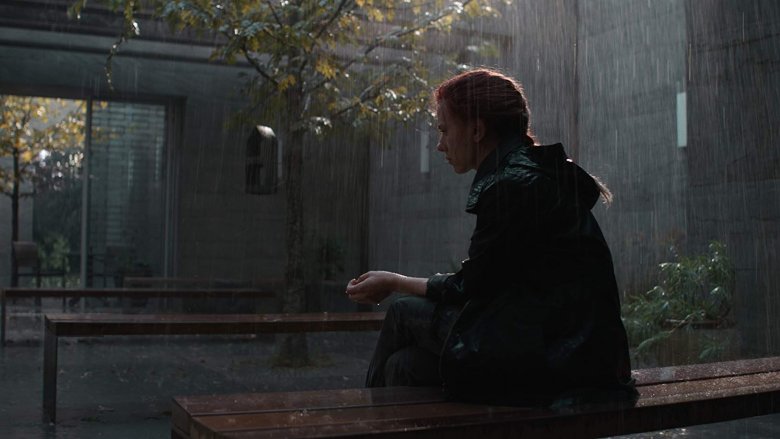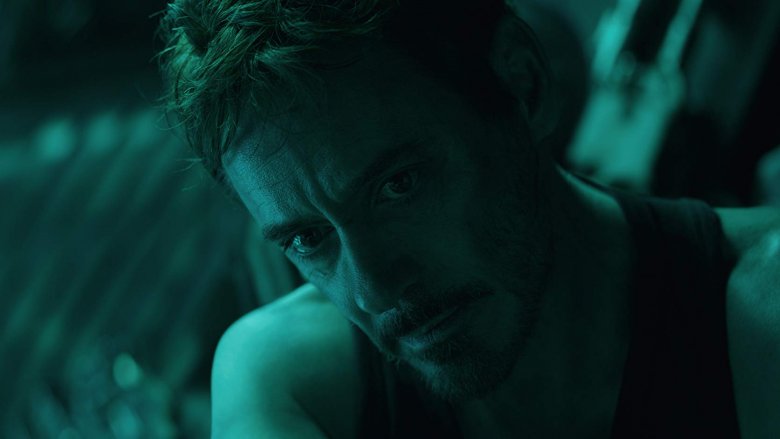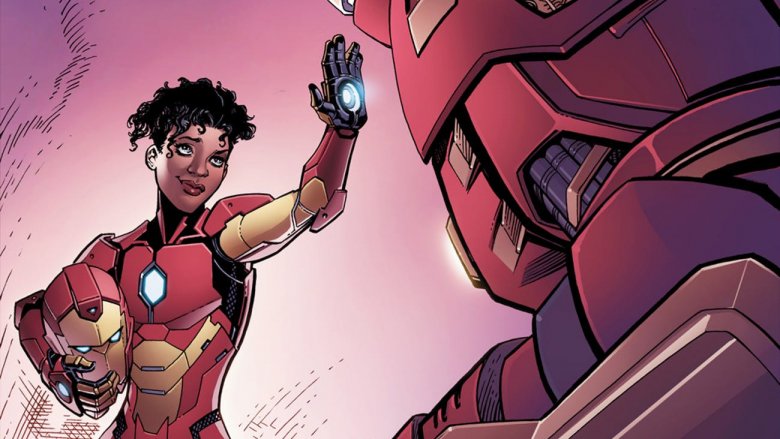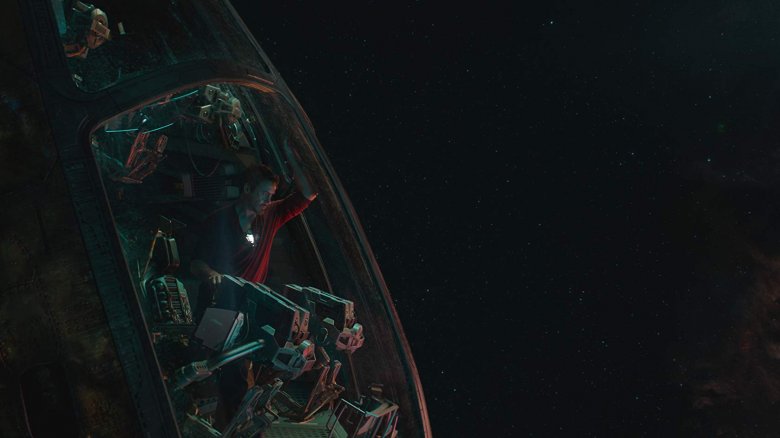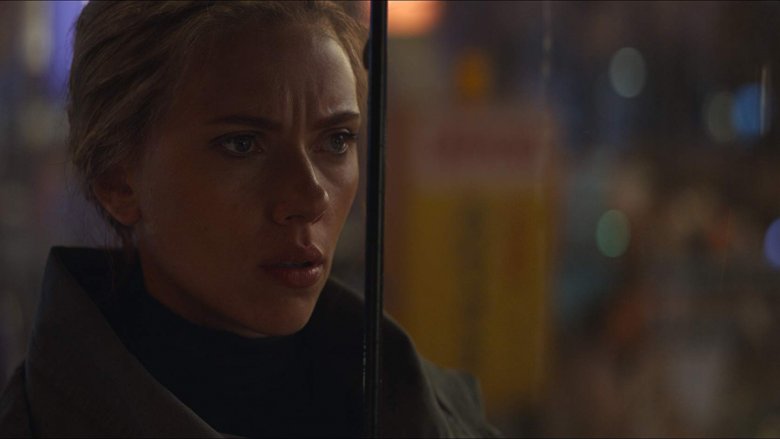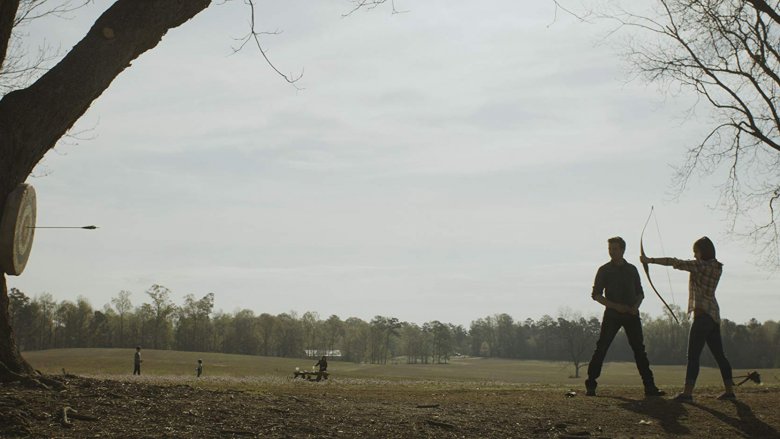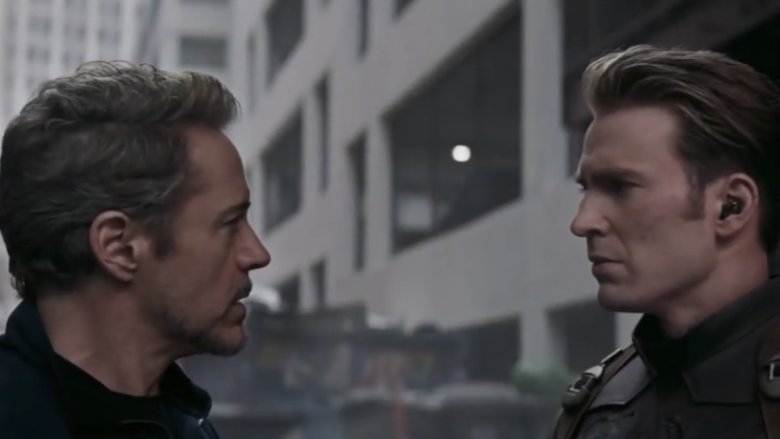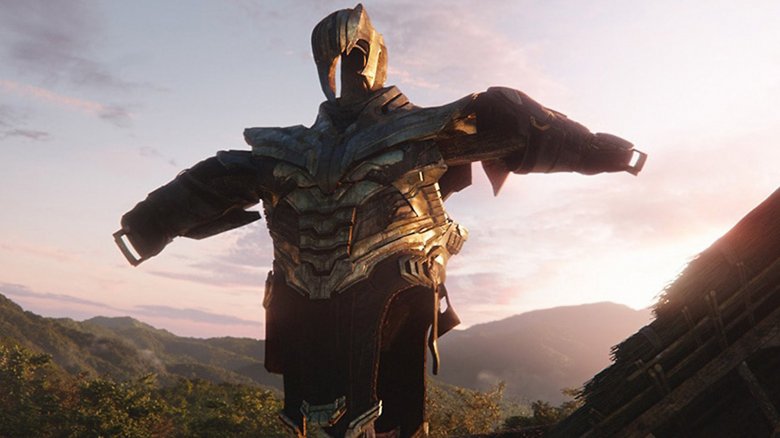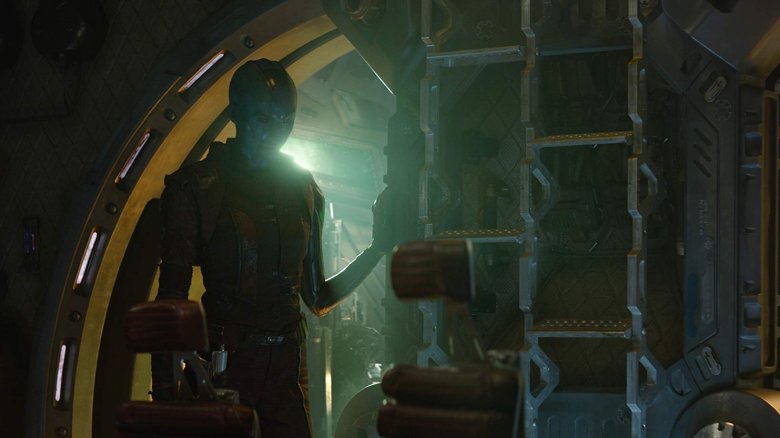What Those Endgame Deaths Mean For The MCU's Future
Avengers: Endgame has finally arrived after a year of speculation, anticipation, and emotional preparation. Now, we finally get to see how Marvel Studios' decade-long Infinity Saga wraps up in what is truly the end of an era for the Marvel Cinematic Universe.
We knew closing out an era of storytelling meant that we would probably lose some people, and we've spent months talking about exactly who that might be. Endgame did indeed deliver some devastating deaths, some of which we might not have expected, and now it's time to talk about exactly what those losses mean for the MCU as a whole.
If you've seen Endgame, now's the time to start unpacking exactly how the MCU will cope with its losses, what those deaths mean for current and future heroes, and how the shape of the world in stories to come will be affected. And of course, it should go without saying, but there are MAJOR SPOILERS for the entire film ahead.
A triumphant sacrifice
If Tony Stark had to go out, it's lucky for all of us that he went out the way that he did: Declaring "I am Iron Man" right in Thanos' face before wiping the Mad Titan and his whole army from existence. The Infinity Saga, as Marvel has taken to calling the last 10-plus years of filmmaking, starts with Tony Stark, and it's fitting that it also ends with him.
The immediate aftermath of Tony's death is, of course, one full of grief, as the funeral for the Armored Avenger proved. Every surviving superhero put in time there, and it's clear that this loss will echo throughout their community for years to come, particularly when it comes to those close to him, like Peter Parker and Nick Fury.
The other immediate aftermath, emotionally speaking, comes in the form of Tony's family, which he'd finally built and stabilized in the years after the Decimation. Happy Hogan is clearly already stepping in to be a kind of father figure to Morgan Stark, promising to buy all the cheeseburgers she wants, but Pepper Potts' grief will run deeper. After years of worrying over him, she could see that Tony really was at peace after ending his own personal curse, but his loss after so many near misses will stay with her, even if we don't see that in the films.
A noble fall
Black Widow was one of the MCU's great survivors, facing down countless superpowered threats and personal demons throughout her life, so it makes sense in a bittersweet way that her death was on her own terms. Natasha Romanoff chose to sacrifice herself, and forced her dear friend Clint Barton to let her — not just to get the Soul Stone, but so her fellow Avengers could get on with their lives. As she said all along: She had red in her ledger, and this was the ultimate way of wiping that out.
Sadly, Natasha did not get a funeral, at least not that we saw. Her death came during the Avengers' epic time heist, and we saw the grief in the faces of her comrades as they swore to make her loss worth it. Beyond the emotional loss, though, there's also a greater loss for the MCU. In the face of everything, Natasha was always the cool one under pressure, always trying to think a few steps ahead and map out a position based on intelligence and strategy. She became the field commander for the Avengers in the years after the Decimation, and the point of contact for heroes no matter where they were in the galaxy. Now someone else will have to fill that role, and it will be hard to find someone capable of doing it as well or as tirelessly.
The future of Stark Industries
Tony Stark wasn't just a man, of course, and he wasn't just a man who was also a superhero identity. He was an empire, the center of a vast array of corporate holdings and financial might that, while it had been restructured in the wake of his Iron Man origin, did still exist in the world and allowed him to finance the Avengers as well as his many projects.
It's not clear in the wake of the Decimation exactly what became of Stark Industries, or what Tony and his wife Pepper Potts even had to do with the company anymore. They certainly had enough wealth to retire to their lakeside cabin without any need to earn money, and Tony had plenty of time and energy to do things like build Pepper some armor of her own and, well... solve time travel.
Still, Tony leaves behind a wife and a daughter to take over whatever is left of his corporate holdings and personal wealth, and they'll be doing in a repopulated world that will need innovative technologies to get things back on track. It's a good bet that Pepper will use these resources to provide assistance in any way she can, and long after he's gone, much of the world will be running on some form of Stark tech.
The rise of Ironheart
Tony Stark is gone, but the technology he put into the world is not. The history of the MCU so far is full of the various ripple effects that came from his inventions, and as of Endgame that has taken the form of two different superheroes wearing his tech: War Machine and, now, Pepper Potts in her own armor, taking on an identity Marvel Comics dubbed "Rescue."
Gwyneth Paltrow's return to the MCU is very unlikely, but War Machine will likely still be knocking around, and Stark's Iron Man suits won't be going anywhere in the public imagination, particularly after he saved the world in such spectacular fashion. With that in mind, it might be time to call up a young science nerd to fill Stark's shoes and take flight in his suits. In the comics, that was a teenager named Riri Williams, who wears Stark-style armor and calls herself "Ironheart." Some fans have already speculated that Black Panther's little sister Shuri, herself a brilliant scientist, could take on this mantle in the MCU, but it could also be Stark's daughter Morgan — or a character we've never actually met. Whatever the case, the MCU is ripe for new blood, and Ironheart in some form could lead that charge.
A second life
As part of the entrance of Riri Williams as Ironheart in the Marvel Comics universe, it was revealed that Tony Stark sustained such serious injuries in the Civil War II event that he fell into a coma, but not before making a copy of his consciousness which was able to assist Riri and converse with other Marvel characters as a form of artificial intelligence. This Tony Stark A.I. became a mainstay of the Marvel Universe for quite some time, while also retaining much of the wit and wisdom that made up Tony as a man.
Tony's last recording for his daughter is just that — a recording — but given everything that Tony has tinkered with over the years, including frequent artificial intelligence ventures, it's quite possible that he would have taken a cue from his comics counterpart and found some way of recording himself as a consciousness for later use. This would not only allow the character to carry on in some form, but would also create opportunities for Robert Downey Jr. to make brief cameos in a number of future MCU projects. Tony Stark would be gone, but "Tony Stark" could live on, if only as a voice in another hero's head.
Passing on the mantle
Natasha Romanoff may have died in Endgame, but that's not necessarily the end of Black Widow. A prequel film following the character's early years is in development, and while it hasn't yet been officially announced by Marvel Studios, it seems likely we'll get it sometime in the near future.
Even beyond that, though, Natasha Romanoff doesn't have to be the end of the line for the character. There are other Black Widows populating the world of Marvel Comics, and the MCU-based television series Agent Carter even introduced a similar assassin character all the way back in the 1940s, though she wasn't ever officially designated as "Black Widow." Another assassin named Yelena Belova was introduced as the second Black Widow in the 1990s, and in the 2000s a woman named Monica Chang, who happened to be Nick Fury's ex-wife, was introduced as an Ultimate Universe version of Black Widow. Either of these women could be introduced to the MCU in some form soon, or another pre-existing character (like Clint Barton's daughter) could succeed Natasha, not necessarily as Black Widow, but in a Black Widow-like role. Natasha is irreplaceable, but the role she played on the greater team has to be filled.
The next Hawkeye
The very first scene in Avengers: Endgame shows us that Clint "Hawkeye" Barton was already passing on his skill as an archer to his daughter, and the film takes great pains to stress just how important Barton's family was to him. It also stresses that he considers Natasha to be part of his family, to the point that he'd literally rather beat her up than let her die in his place on Vormir.
Hawkeye was closer to Black Widow than any other Avenger, even the Hulk, and he feels her loss the deepest. He also seems to be the one who can do the most about it, by carrying on her legacy as the non-superpowered steady hand in the midst of the superhero chaos. He'll reportedly do that in part by passing the Hawkeye mantle on to another character, Kate Bishop, in an upcoming Disney+ series. We don't yet know the motivations behind that story, but while some of it will likely be founded in Clint's desire to scale back his superheroics, there's also a sense that he owes it to Natasha to build up powerful women as she would have. In passing on his own skills and gifts, he's helping to honor hers, which is what a best friend would do.
Avengers Reassembled
The Avengers were always a team with two men at their center: Tony Stark and Steve Rogers, a partnership so important that the team could not sustain their biggest ideological battle. Endgame allows the Avengers to once again present a united front, but by the end of the film Steve Rogers is an old man who took some much-needed rest with the love of his life, and Tony Stark is gone. That creates a power vacuum at the center of Earth's Mightiest Heroes. Who's going to fill it?
Captain America is around to make his own choice in that regard, passing on his shield to Sam "Falcon" Wilson, but what would Tony want in terms of leadership? He was, after all, the financial backer of the team as well as a significant tactical force. He might pass the role on to War Machine or Hulk, but both of them might decline if it were directly offered. Instead, the way the MCU's rolling out right now suggests another leader: Carol Danvers' Captain Marvel, who saved Tony from the brink of death in space and is now positioned as the MCU's most powerful hero. She has military experience, years of heroism under her belt, and a great deal of confidence, so she seems like the perfect fit.
A cosmic power vacuum
With his last act of heroism, Tony Stark not only killed Thanos, but wiped away every trace of Thanos' allies and soldiers, ridding the universe of its greatest threat. In The Avengers, the Other warned Thanos that fighting the heroes of Earth was to "court death," and Thanos simply smiled. Now that's been proven with his actual death, which only heightens the cosmic reputation of the Earth and its heroes. There's a whole universe out there, and all of it went through the Decimation. As everyone recovers, word will spread of the heroes of Earth and how they somehow were the key to undoing everything Thanos did. That means future supervillains are even more likely to fear Earth.
It also means that a massive power vacuum has arisen where Thanos and his minions used to be. The universe's greatest threat is gone, yes, but power vacuums have to be filled on both sides of the good vs. evil divide, and that means that somewhere right now there's an intergalactic madman or madwoman hellbent on destruction, eager to get a taste of the Avengers and prove that they can be the one to beat them. As Vision said, this kind of power is bound to invite confrontation.
Another battle scar
There's one more death that's worth mentioning in Avengers: Endgame, one which doesn't necessarily have major implications in the moment it happens, but which could have bigger ones going forward. In her quest to stop Thanos and save the universe from his cruelty, Nebula was forced to kill her own past self. She was far from the only person in the film to encounter their own past, or even the only one to fight a version of herself, but she was the only one who pulled a trigger and ended, effectively, her own life. Now, the version of time travel put forth in Endgame does not mean that killing her past self also killed Nebula's present self (by going back in time, her own past became her own present and future), but it will create some interesting emotional hurdles for an already emotionally tested character to clear in films to come. We don't yet know what Nebula will do next, how she'll reckon with what she's done or how much it will affect her, but it's not something that will just fade away. It's yet another scar that one of the MCU's most scarred characters will have to bear, and that's bound to pay off eventually.
